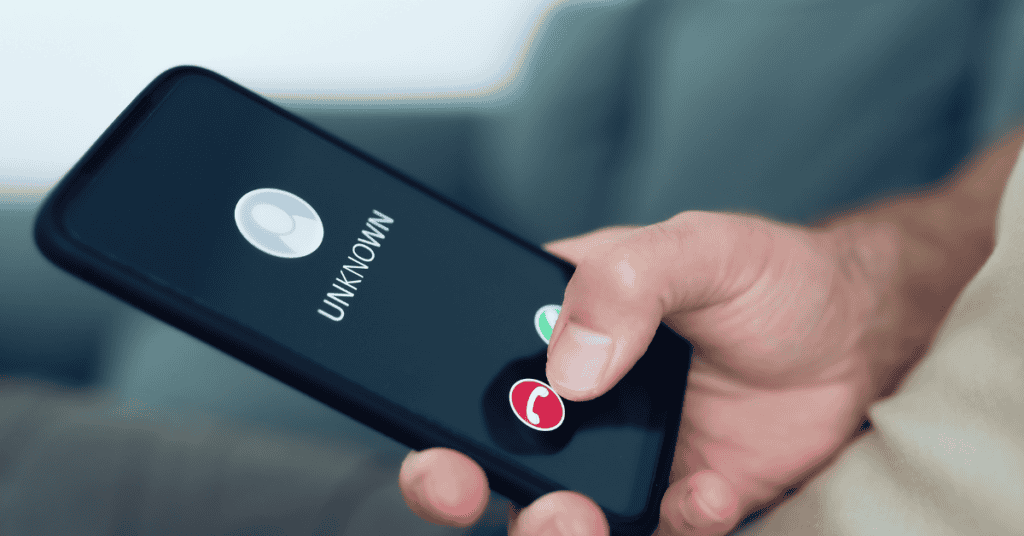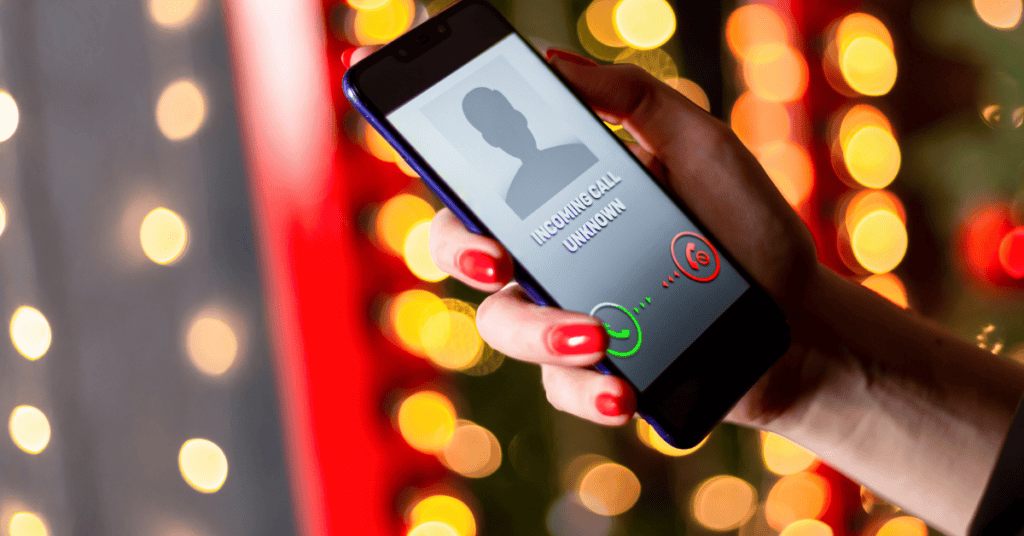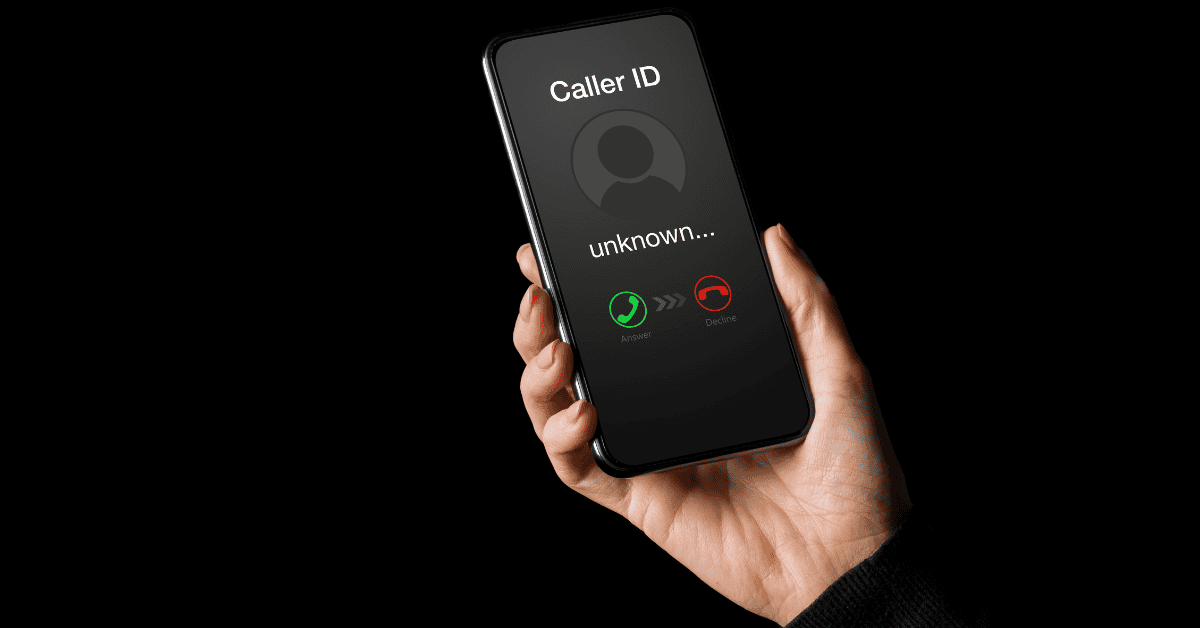Getting phone calls meant for someone else is annoying, and getting them multiple times of day can affect your personal and professional life drastically.
Therefore, it’s essential to track down the precise reason behind these calls and resolve it as quickly as possible!
If you receive only one or two of these kinds of calls, it’s probably just an innocent dialing mistake.
At the same time, it’s best not to encourage such callers, as there’s still a chance that they could be scammers trying to trick you.
If you feel it is an honest mistake, be straightforward and redirect them to the intended person (if possible).
However, if you smell a scam instead, blocking and reporting the number to the Federal Trade Commission is the safest option!
Can Someone Else Have The Same Phone Number As Me?

No. Two people cannot have the same phone number (at least, not unless something’s gone wrong).
Telecom companies usually have enough safeguards in their programs to prevent these kinds of errors.
However, if you have not been using your number regularly for a prolonged period, it’s possible that they may add it to the inactive list.
While the period of time you can keep your mobile number while inactive differs among operators, they will typically class your number as inactive after months of zero use and release it back to the available numbers pool.
If this is the case, someone else may then purchase your number. When this occurs, you will find that you can no longer operate through that number!
Other than that, there is no other way two people actively using a cellular service will end up with the same number.
If someone uses your number to message or call others, you are most likely a victim of something called phone spoofing.
call blocking and reporting the number to the Federal Trade Commission is the safest option!
Nowadays, fraudsters are able to use technology that allows them to make phone calls over the internet.
In doing so, they reroute the calls through another person’s number or name; as a result, the recipient will see your name or number when they answer the scammers’ call.
These kinds of scams can unfortunately land you in hot water if it goes unaddressed.
With the explosion of calling apps, it is easier than ever to spoof telephone calls. Once a person answers one of these spoofed calls, these imposters will engage them in conversation and try to milk information or money from them.
Telemarketers also carry out spoofing, as people tend to answer calls if it is a local phone number.
In addition, many other businesses, from collection agencies to private investigators, many may resort to spoofing to mask their identity (watch out for those 4-digit phone numbers!).
However, the real trouble takes place when scammers use your phone number.
The weirdest situation of all could be getting a ring from your own number!
Con men have been known to use this tactic routinely because they have found that users will normally pick up the call out of curiosity.
The scammer will then try to fool you by saying someone else has bought your number. Following that, they’ll charge a fee to “restore” it back to you. It goes without saying that it’s best to ignore such calls!
Finally, there’s also the possibility that hackers may have gained access to your phone and are now making calls posing as you.
If you suspect this to be the case, resetting the phone to factory settings and enhancing phone security are the initial steps to take in resolving this security breach.
Why Am I Receiving Someone Else’s Calls?

Not every wrong call is a scam, as many could really be genuine mistakes:
- For example, someone may have mistakenly altered a single digit while advertising or printing a business card.
- It’s also plausible that a caller may have wrongly entered your phone number while setting the “Call divert” option.
- Another explanation could be that someone had previously owned your current number. However, due to non-payment of dues or inactivity, their number may have been recycled by the phone company and is now assigned to you.
- Therefore, if someone asks for a specific person by name, they were probably intending to contact the previous owner of your current number.
- Ask for the age of the intended person. If they’re looking for an older adult, it fits this scenario because many older folks keep their mobiles inactive for long periods.
- Your number may be one digit off a famous shop, a celebrity’s number, or even a tech company’s complaint portal.
- So, if you repeatedly receive calls asking for a famous brand, ask the exact number the callers are looking to dial, and hopefully, this will help to solve the mystery.
- Someone might just be pranking you. Think about all the people who would do this to you for a prolonged period.
- Use a Caller ID app to find out the details about who is making these calls. If they are coming out of a specific area or an office building, you may be able to figure out the person behind the prank.
Since there could be many genuine reasons such as those above, pressing the panic button immediately after four or five of these calls is not usually necessary.
However, if the calls come at random hours and continue for days, it could be an indication of a scam.
The most straightforward ones will directly ask for money to have them stop calling you.
Unfortunately, the victims will sometimes agree to pay out of frustration to stop the constant calls. However, that’s usually not the end of it.
A scammer who is cold calling you on the pretext of a wrong number will observe how you are responding.
Are you willingly divulging details about your credit card, bank account or other personal information?
Are you losing your cool and yelling, or are you breaking down and crying?
Your reactions matter to fraudsters. They will tailor their scam based on how you deal with the calls.
Therefore, if you really have to talk to them, it’s always better to sound as confident as possible and take your time to reply to queries.
Assess the intention of the caller before answering any of their questions, no matter how harmless they seem!
What To Do When You Keep Getting Calls For Someone Else

The best advice is: Don’t do anything!
If it’s been happening for just a day or two, ignoring the calls will usually do the trick.
However, if the calls continue for a week in the daytime, try to listen to what the callers want.
In case the callers are looking for a specific person or a company and sound polite, there is a chance that someone mistakenly gave your number.
Managing to catch hold of the intended person will help to correct the mistake!
However, if the calls continue for more than a week and begin to affect your work and sleep cycles, it’s time for action.
You can start by blocking specific callers if the calls originate from a set of five to six numbers.
Use your call settings to block these numbers; you can also install applications that enable this option on your phone.
In addition, some apps allow you to see the number of incoming calls that have been blocked.
The next step is to stop your number from receiving these calls.
You should make use of this step if you think the person is aiming to sell you a product on the pretext of a wrong number.
You can prevent telemarketers from reaching you by registering your mobile number with the National Do Not Call Registry.
This simple action will stop marketing calls from being made to your phone- a passive yet effective measure you can use to handle the menace.
If you want to pursue this more actively, reporting the situation to the Federal Communications Commission or the Federal Trade Commission is a good start.
However, raising complaints with them will not necessarily help you in the short term. These commissions simply do not have the resources to act on every individual complaint.
However, if they receive a lot of complaints similar to yours, they may begin to address them through specific policies or by investigating them in the field. They may also block these numbers from contacting anyone again.
It’s definitely recommended to approach the nearest police station or cybercrime experts if you think you are being conned or have lost money to the scammers.
Start to record the calls, as this will act as proof and strengthen your case. Next, insist on registering a formal complaint and follow it up diligently. Lastly, explain in detail the techniques the conmen used to try to fool you!
Many scammers have a specifically recognizable technique, so you should describe the fraud in as much detail as you can to the authorities.
If nothing works, you can always change your number as a final resort! Only do this if you really have no other choice, as it will involve a lot of admin and organization to make sure everyone is aware of your new number.
Final Thoughts
It is crucial to understand that you’re not alone in this.
In 2020, The Federal Trade Commission received close to 2.2 million fraud reports.
Unfortunate telephone scam victims have lost around $3.3 billion and counting.
Receiving these calls has become a situation that most people have experienced at least once in their lifetime!
Panicking or getting frustrated at the repeated calls will only aggravate the issue.
If you feel it is a genuine mistake, try to sort it out by investigating a little bit.
Ask the callers where they got the number, and if the source remains consistent it’s likely that it’s truly just an honest mistake.
If you sense trouble, start blocking numbers left and right! If the calls continue for extended periods, raise complaints with the relevant forums and your service provider.
At any point, if you’re certain that you’re being targeted by a persistent scammer, contact the police immediately.
Do you know how to stay safe on your smartphone? Keep yourself protected with our Comprehensive A-Z Of Smartphone Security right HERE!
